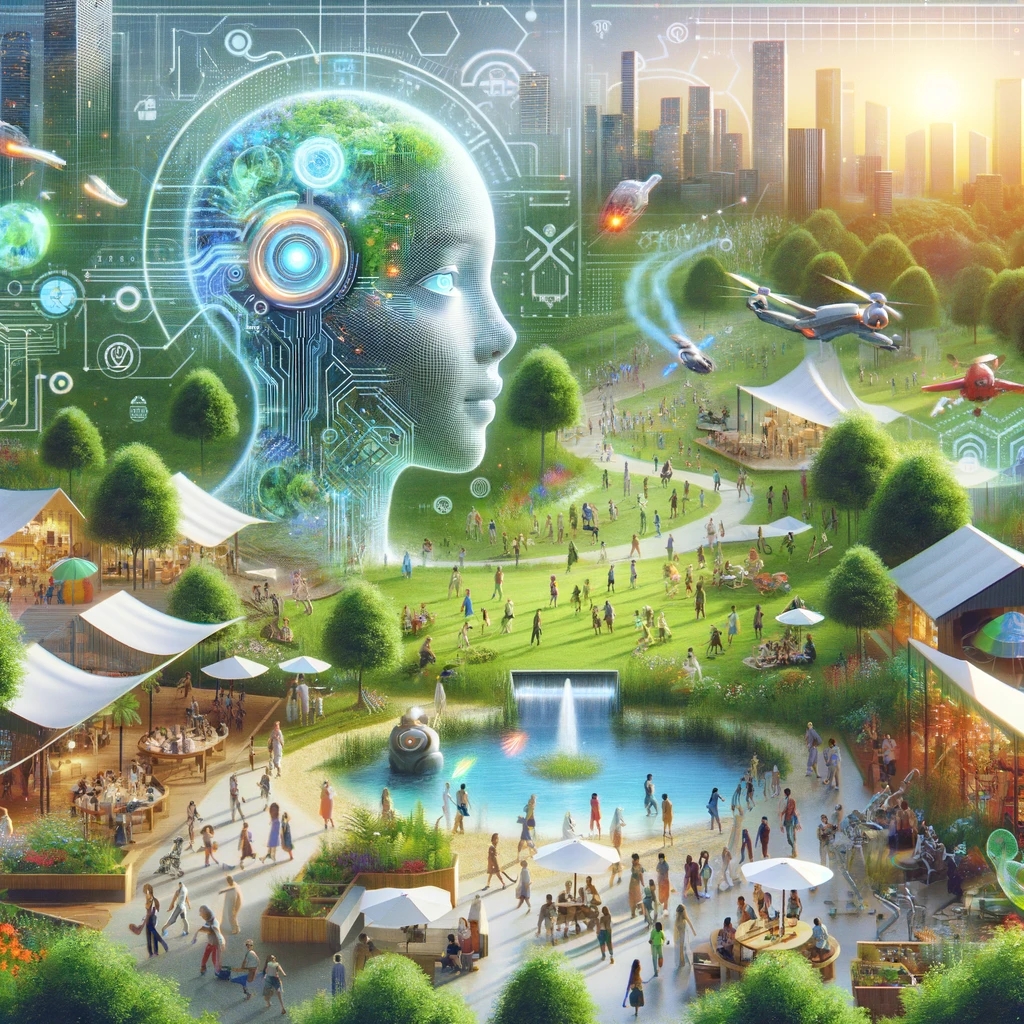In the collective imagination of a future transformed by artificial intelligence and automation, there exists a utopian vision. It’s a world where work, as we currently understand it, no longer defines human value or identity. In this ideal society, AI and robotics handle the bulk of labor, freeing humans to engage in creative, educational, and leisure activities that foster a sense of community and personal fulfillment. I sincerely believe that Jacque Fresco would’ve loved to see the age of AI unfold. The question, however, remains: what are the prerequisites for such a profound societal transformation, and how does this vision align with the stark realities we face today?
The Blueprint for Utopia
The foundation of this utopia rests on several pivotal shifts.
Education, for one, would need to evolve beyond preparing individuals for the workforce. Instead, it would aim to cultivate critical thinking, creativity, and emotional intelligence—skills that machines cannot replicate. This approach not only aligns with the demands of an AI-driven economy but also enriches the human experience, allowing individuals to explore diverse interests and passions.
Societal values would also undergo a significant transformation. The measure of a person’s worth would shift from their economic output to their contribution to the community, their ability to innovate, and their engagement in lifelong learning. This revaluation would require dismantling deeply ingrained beliefs about work, success, and productivity.
Moreover, economic structures would need to adapt to ensure a fair distribution of the wealth generated by AI and automation. Concepts such as Universal Basic Income (UBI) are often cited as solutions to the displacement caused by technological advancements. UBI could provide a safety net for all citizens, guaranteeing a standard of living that allows for full participation in this new societal model.
Confronting Reality
While the blueprint for utopia sketches an appealing picture, the route to its realization is fraught with obstacles. Economic inequality, already a pervasive issue, could be exacerbated by the uneven impact of automation. High-skill workers may find new opportunities in emerging fields, whereas job roles with a high potential for automation face a harsher reality—diminishing job prospects and increasing competition for the roles that remain.
The transition to a post-work society also presupposes a level of technological and economic stability that may not be achievable in the short term. The initial phases of this transformation could see significant disruption as industries adjust, jobs are redefined, and economic models are tested.
Furthermore, the psychological impact of this shift cannot be understated. For many, work provides a sense of purpose and belonging. The challenge lies not only in creating economic models that support a post-work society but also in fostering a cultural shift that embraces new definitions of purpose and success.
Bridging the Gap
The journey from our current reality to the envisioned utopia requires more than technological innovation—it demands a collective reimagining of societal values and structures. Engaging in open, honest dialogues about the future of work, the role of education, and the distribution of wealth will be crucial. So, too, will be the exploration of interim solutions that mitigate the adverse effects of this transition on vulnerable populations.
As we stand at the crossroads of potential and reality, the choices we make today will shape the world of tomorrow. By critically examining both the utopian ideal and the tangible challenges we face, we can chart a course that seeks not only to mitigate the risks associated with AI and automation but also to maximize the opportunities they present for building a more equitable, fulfilled society.

Leave a comment